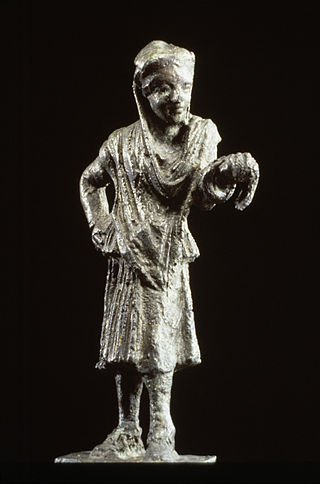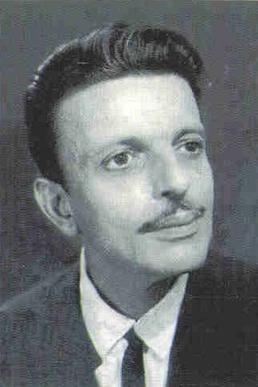
Radio drama is a dramatized, purely acoustic performance. With no visual component, radio drama depends on dialogue, music and sound effects to help the listener imagine the characters and story: "It is auditory in the physical dimension but equally powerful as a visual force in the psychological dimension." Radio drama includes plays specifically written for radio, docudrama, dramatized works of fiction, as well as plays originally written for the theatre, including musical theatre, and opera.
A regional theater or resident theater in the United States is a professional or semi-professional theater company that produces its own seasons. The term regional theater most often refers to a professional theater outside New York City. A regional theater may be a for-profit or not-for-profit entity and may be unionized or non-union.

Manipur is a state in Northeast India, with the city of Imphal as its capital. It is bounded by the Indian states of Nagaland to the north, Mizoram to the south and Assam to the west. It also borders two regions of Myanmar, Sagaing Region to the east and Chin State to the south. The state covers an area of 22,327 square kilometres (8,621 sq mi). Manipur has been at the crossroads of Asian economic and cultural exchange for more than 2,500 years. It connects the Indian subcontinent and Central Asia to Southeast Asia, East Asia, Siberia, regions in the Arctic, Micronesia and Polynesia enabling migration of people, cultures and religions.

The Dionysia was a large festival in ancient Athens in honor of the god Dionysus, the central events of which were the theatrical performances of dramatic tragedies and, from 487 BC, comedies. It was the second-most important festival after the Panathenaia. The Dionysia actually consisted of two related festivals, the Rural Dionysia and the City Dionysia, which took place in different parts of the year. They were also an essential part of the Dionysian Mysteries.

Ancient Greek theatre was a theatrical culture that flourished in ancient Greece from 700 BC. The city-state of Athens, which became a significant cultural, political, and religious place during this period, was its centre, where the theatre was institutionalised as part of a festival called the Dionysia, which honoured the god Dionysus. Tragedy, comedy, and the satyr play were the three dramatic genres to emerge there. Athens exported the festival to its numerous colonies. Modern Western theatre comes, in large measure, from the theatre of ancient Greece, from which it borrows technical terminology, classification into genres, and many of its themes, stock characters, and plot elements.

René Marqués was a Puerto Rican short story writer and playwright.
John Woodvine is an English actor who has appeared in more than 70 theatre productions, as well as a similar number of television and film roles.

The Lyceum Theatre is a West End theatre located in the City of Westminster, on Wellington Street, just off the Strand in central London. It has a seating capacity of 2,100. The origins of the theatre date to 1765. Managed by Samuel Arnold, from 1794 to 1809 the building hosted a variety of entertainments including a circus produced by Philip Astley, a chapel, and the first London exhibition of waxworks by Madame Tussauds. From 1816 to 1830, it served as The English Opera House. After a fire, the house was rebuilt and reopened on 14 July 1834 to a design by Samuel Beazley. The building is unique in that it has a balcony overhanging the dress circle. It was built by the partnership of Peto & Grissell. The theatre then played opera, adaptations of Charles Dickens novels and James Planché's "fairy extravaganzas", among other works.

The Medical Defence Union (MDU) is the leading medical defence organisation (MDO) in the United Kingdom, offering professional medical indemnity for clinical negligence claims and advice provided by medico-legal experts for its members. A mutual not for profit organisation that guides, supports and defends medical & dental professionals in the UK. Led and staffed by doctors and dentists with real-life experience of the challenges faced by healthcare professionals.

Satish Vasant Alekar is a Marathi playwright, actor, and theatre director. A founder member of the Theatre Academy of Pune, and most known for his plays Mahanirvan (1974), Mahapoor (1975), Atirekee (1990), Pidhijat (2003), Mickey ani Memsahib (1973), and Begum Barve (1979), all of which he also directed for the Academy. Along with Mahesh Elkunchwar and Vijay Tendulkar he is considered among the most influential and progressive playwrights in modern Marathi and Indian theatre.
Elam Endira Devi, is an Indian classical dancer and teacher, known for her expertise and scholarship in the classical dance form of Manipuri, especially in the genres of Lai Haraoba and Raas. The Government of India honored her, in 2014, with the Padma Shri, the fourth highest civilian award, for her services to the field of art and culture.

The Cinema of Manipur is the film industry based in Manipur, India. It includes not only Meitei language movies but all the films made in different languages of the different communities in Manipur. The Manipuri film industry was born when Matamgi Manipur was released on 9 April 1972. Before this, there were many attempts to make a film in the state, the most significant being Mainu Pemcha in 1948 which was left incomplete due to various problems.

Sabitri Heisnam is an Indian stage actor and one of the notable theatre personalities in Manipuri theatre. She has also acted in the critically acclaimed short film, Scribbles on Akka (2000), directed by Madhusree Dutta, which won the IDPA Award, best script award at Shanghai International Film Festival and the National Film Award for Best Anthropological Film. She is a recipient of the Sangeet Natak Akademi Award of 1991. The Government of India awarded her the fourth highest civilian honour of the Padma Shri, in 2008, for her contributions to Manipuri theatre.

Gurumayum Bonny Sharma is an Indian actor and singer who predominantly appears in Manipuri films. He is famous for movies 'Yaiskul Pakhang Angaoba', 'Beragee Bomb', 'Mr Khadang'. He is a resident of Keishamthong Maning Longjam Leikai, Imphal, Manipur. He has also worked in the Shumang Kumheis including Kunti series, Nongallamdaisida, Opium War, and Pizza.

Maharaj Kumari Binodini Devi was an Indian novelist, short story writer, playwright, lyricist and member of the royal family of Manipur. She published books under the name Binodini. She was best known for her 1976 novel Boro Saheb Ongbi Sanatombi.
Makhonmani Mongsaba is an Indian author, actor, producer and director from Imphal, Manipur. He got his doctorate degree in Manipuri from Manipur University. In 2013, he won the prestigious Sahitya Akademi Award for his book Chinglon Amadagi Amada, a travelogue. He published the book Matamgi Manipur:The First Manipuri Feature Film by Bobby Wahengbam under the name Angomningthou Preservation and Documentation. It won the Best Book on Cinema at the 65th National Film Awards 2018 and both the writer and the publisher received the Swarna Kamal award.
Khwairakpam Bishwamittra is an Indian film director, actor and script writer who works in theatre and Manipuri films. He first appeared on silver screen in the 1996 hit film Kanaga Hinghouni, where he co-directed with Chan Heisnam. Some of the famous films he directed include Kaorage, Torei and Sur Da Ngaojabee. He is also a renowned playwright of Manipuri Shumang Leelas and stage plays produced by AIR Imphal and Doordarshan DDK Imphal. As of 2022, his non-feature Eewai got official selection at the 4th Nepal Cultural International Film Festival 2022. Eewai was screened at the 28th Kolkata International Film Festival in Short and Documentary Panorama section on 19th and 21st December 2022 at Nandan-III and Sichir Mancha, Kolkata.

In Meitei mythology and folklore, the epic cycles of incarnations in Moirang is a cyclic epic of seven incarnations of two divine lovers in the kingdom of Moirang in the realm of Ancient Kangleipak.

The ancient legend of Khuyol Haoba and Yaithing Konu is one of the epic cycles of incarnations of Meitei mythology and folklore, that is originated from Moirang kingdom of Ancient Kangleipak. It concerns the fateful love of Khuyol Haoba, an orphan man, for the beautiful Yaithing Konu. Khuyol Haoba was the son of late Khundouremba, a court official of Moirang. Yaithing Konu was the daughter of Luwang Huiningsumba, an influential nobleman of Moirang.

The ancient legend of Kadeng Thangjahanba and Tonu Laijinglembi is one of the epic cycles of incarnations of Meitei mythology and folklore, that is originated from Moirang kingdom of Ancient Kangleipak. It concerns the fateful love of Kadeng Thangjahanba, a skilled blacksmith, for the beautiful Tonu Laijinglembi. Kadeng Thangjahanba was a highly talented and skilful royal chief metalsmith appointed by King Laijing Ningthou Punsiba of Moirang. Tonu Laijinglembi was the only daughter of Laijing Lakpa, a favourite nobleman of the King of Moirang.














